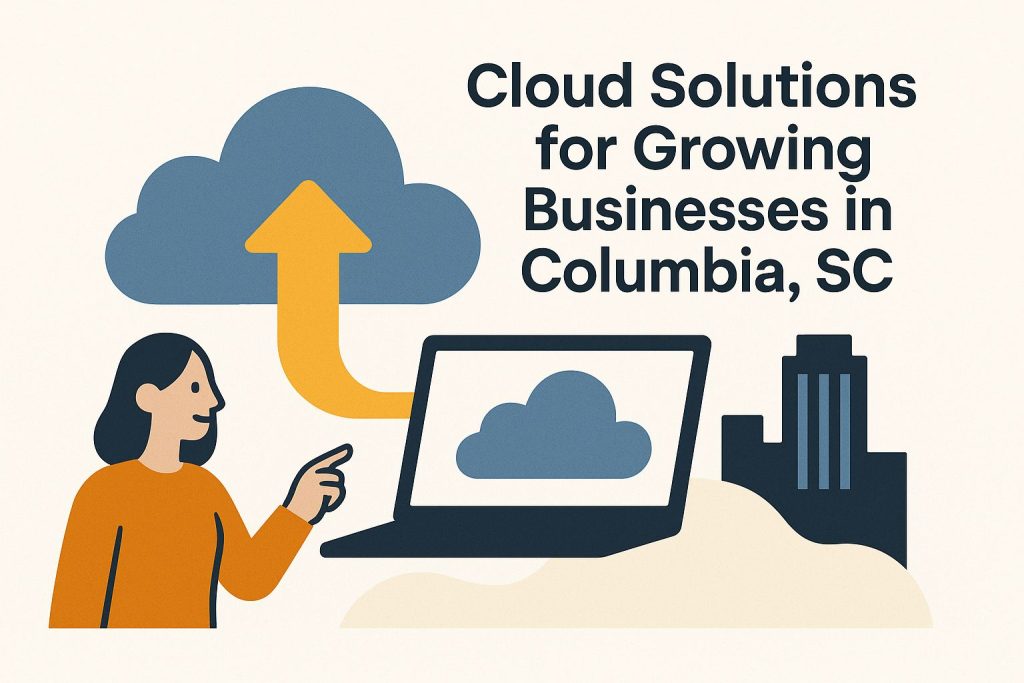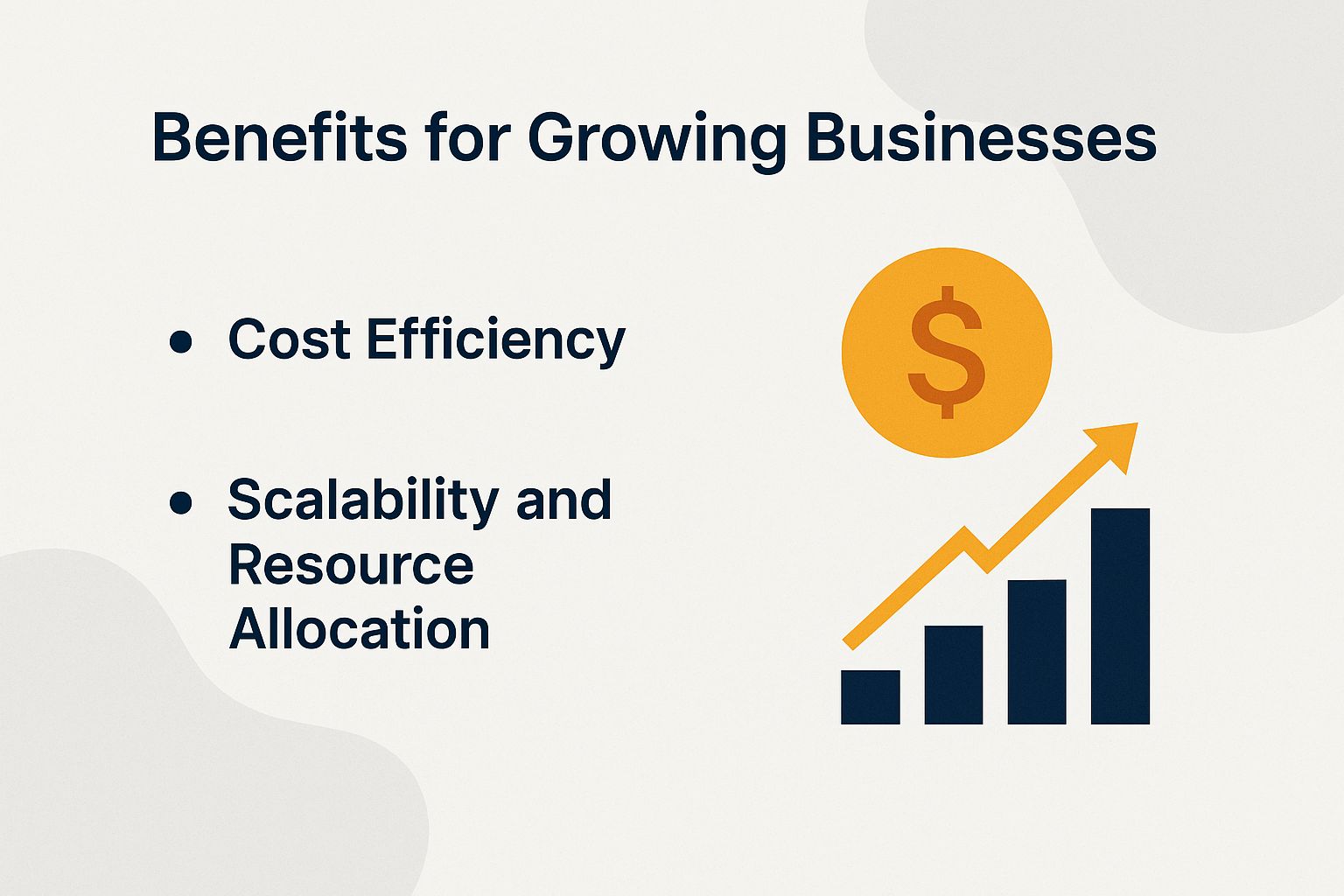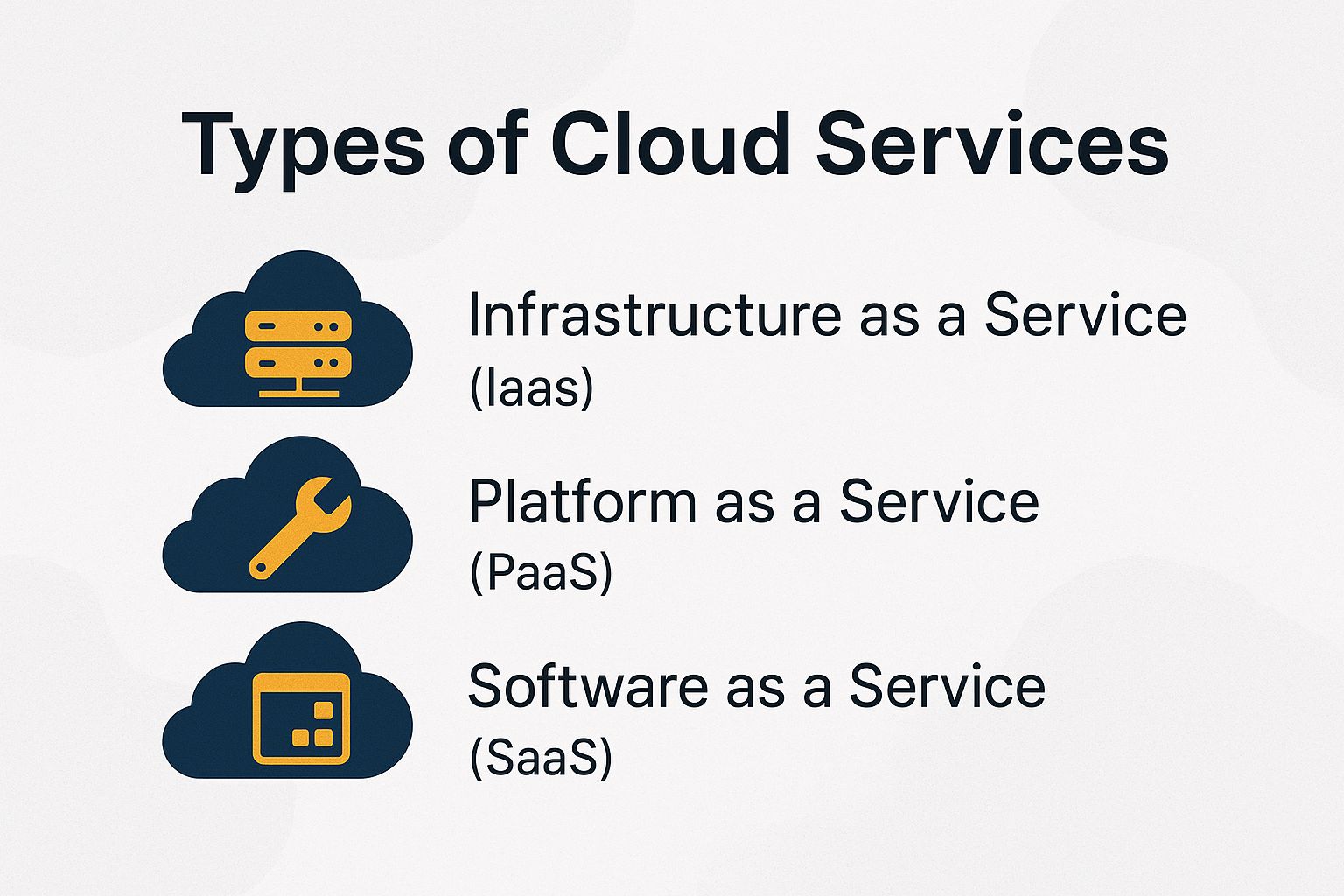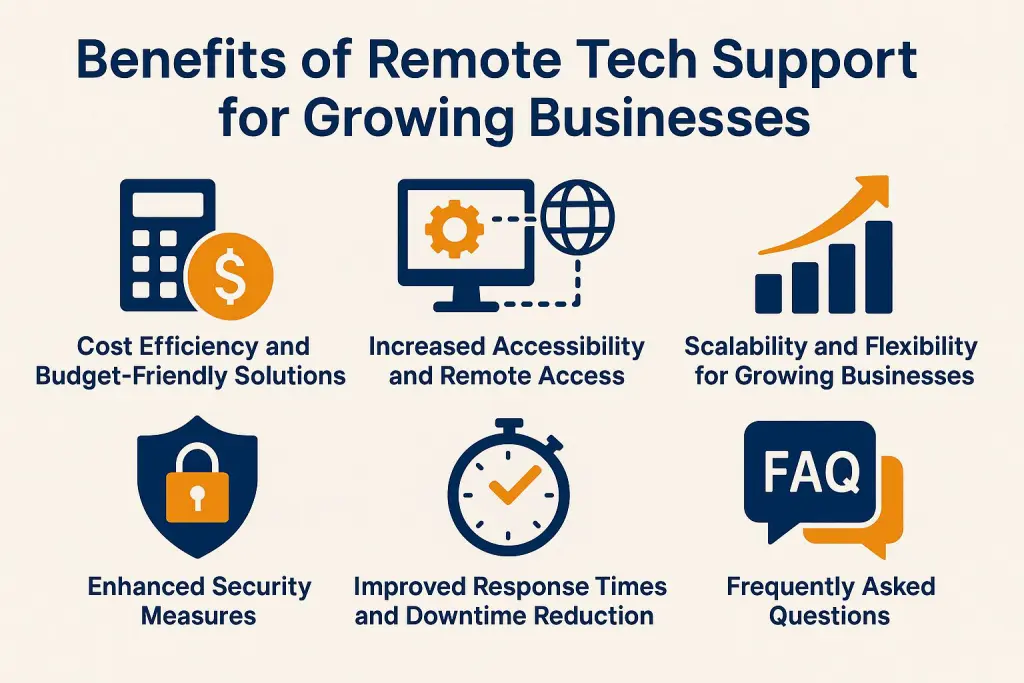Cloud Solutions for Growing Businesses in Columbia, SC

Businesses in Columbia, SC, are experiencing rapid growth and expanding quickly in the market. Cloud solutions help them work better and grow more. This article looks at types of cloud services, how to choose a provider, and future trends.
Benefits for Growing Businesses

Cloud solutions have many benefits for growing businesses. These include easy access and planning for business continuity.
They help reduce costs while driving business growth and efficiency.
Cost Efficiency
Using cloud solutions can cut IT costs by up to 30%. For example, Dropbox saves $1 million each year on storage.
These services utilize a pay-as-you-go model, enabling organizations to scale their resources based on demand, which significantly lowers costs.
For instance, AWS offers pricing as low as $0.0116 per hour for minimal server capacity. This eliminates the need for costly physical servers and maintenance fees.
Additionally, many cloud providers offer free tiers and generous trial periods, allowing businesses to test solutions without incurring immediate costs, thereby facilitating a smoother transition to cloud services.
Scalability and Resource Allocation
Cloud solutions let businesses change their resources quickly. For example, Microsoft Azure lets companies scale their resources in minutes. A retail company effectively utilized Azure to manage the seasonal surge during the holidays, scaling its compute resources tenfold.
In a similar vein, Dropbox successfully scaled its infrastructure using Google Cloud’s App Engine, adeptly handling a 300% increase in user requests during peak times without experiencing any service interruptions.
By implementing auto-scaling features, businesses can ensure they only incur costs for the resources they utilize while delivering a seamless experience for users, even during unexpected spikes in demand.
Types of Cloud Services

Understanding the types of cloud services such as IaaS, PaaS, and SaaS is important because it helps organizations choose the best solution for their needs. For more information, check out Cloud vs On-Premise Best IT Setup for Your Business.
IaaS, PaaS, and SaaS
IaaS gives virtual computing resources, like AWS EC2. PaaS offers a platform to build apps, like Google App Engine. SaaS delivers software online, such as Microsoft Office 365.
Each of these models addresses distinct needs. IaaS, which employs a usage-based pricing model, is well-suited for businesses requiring flexibility; however, managing the infrastructure can be complex. PaaS generally incurs monthly fees and simplifies the development process with tools like Heroku, making it ideal for startups, though it may limit control over the underlying infrastructure.
SaaS encompasses a broad range of offerings, from free options like Trello to subscription services like Salesforce, providing convenience and accessibility but potentially leading to dependency on the service provider.
Choosing the right model depends on the business’s needs, budget, and desired level of control.
Choosing the Right Provider
Choose a cloud provider carefully. Evaluate service reliability, support options, compliance, and pricing models. This ensures alignment with business goals.
Start by assessing security certifications. Look for providers with ISO 27001 certification. This guarantees strong information security.
Review the Service Level Agreements (SLAs). Confirm uptime guarantees and response times for outages. The availability of customer support is also a critical consideration; 24/7 support is vital for mission-critical applications.
Use platforms like G2 or Capterra to compare reviews and features of different providers. This helps in decision-making. This systematic approach enables businesses to make informed choices that align with their specific needs and risk profiles.
Implementation Strategies
Effective implementation strategies are crucial for smooth migration and integration of cloud solutions. They enhance efficiency and support digital transformation.
Begin with a readiness assessment. Evaluate current systems and identify potential challenges. Following this assessment, organizations should select a migration strategy that aligns with their specific needs.
- Options include: lift-and-shift (move applications as-is) or replatforming (make minimal changes for better performance).
Use tools like CloudEndure to ease migration. It offers real-time replication.
Additionally, conducting training sessions for employees is crucial to familiarize them with the new cloud systems, ensuring that all team members are well-equipped to maximize the benefits of the cloud solutions.
Future Trends in Cloud Computing
Future trends in cloud computing include more artificial intelligence integration, better security measures, and the rise of hybrid cloud solutions. These changes will transform how businesses use technology.
One significant development is the shift toward serverless computing, which enables developers to build and run applications without the need to manage underlying infrastructure. Tools such as AWS Lambda facilitate this process, allowing for rapid deployment and scaling.
With rising cyber threats, 65% of organizations prioritize cloud security compliance. They often emphasize frameworks like NIST or CIS.
By 2025, it is projected that 75% of enterprises will adopt multi-cloud strategies, leveraging platforms such as Google Cloud, AWS, or Azure to mitigate vendor lock-in and optimize costs.
Frequently Asked Questions
What benefits do cloud solutions offer to growing businesses in Columbia, SC?
Cloud solutions offer numerous benefits for growing businesses in Columbia, SC. These include cost savings, increased efficiency and flexibility, improved collaboration, and enhanced data security.
How do cloud solutions assist businesses in Columbia, SC with scalability?
Cloud solutions offer the ability to easily scale up or down based on the needs of the business. This means that businesses in Columbia, SC can quickly adjust their resources and services to meet their growing demands.
Is it safe for growing businesses in Columbia, SC to store sensitive data in the cloud?
Yes, cloud solutions offer advanced security features to protect sensitive data for growing businesses in Columbia, SC. These can include encryption, regular backups, multi-factor authentication, and robust data governance to ensure data is secure.
What types of cloud solutions are available for growing businesses in Columbia, SC to support their technology needs?
There are various types of cloud solutions available for growing businesses in Columbia, SC, including software as a service (SaaS), platform as a service (PaaS), and infrastructure as a service (IaaS). Each offers different levels of support and services to meet business needs, including CRM software and ERP systems.
Can cloud solutions help businesses in Columbia, SC save on IT costs?
Yes, cloud solutions can provide significant cost savings for growing businesses in Columbia, SC. This is because businesses do not need to invest in expensive hardware or IT infrastructure and can instead pay for services on a subscription basis.
How can businesses in Columbia, SC start using cloud solutions to improve scalability and efficiency?
First, businesses in Columbia, SC should identify their needs and goals for cloud solutions. Next, they should research and compare cloud service providers to find the best fit. It is important to seek help from IT professionals for a smooth transition to the cloud.




